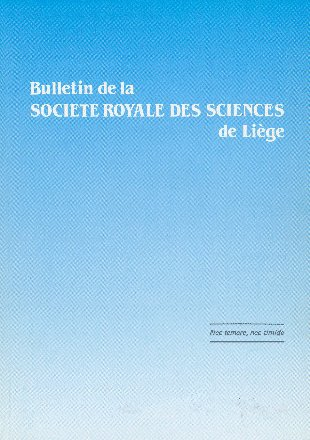- Accueil
- Volume 84 - Année 2015
- Actes de colloques
- Workshop d'astrochimie expérimentale
- Photochemical studies in low Earth orbit for organic compounds related to small bodies, Titan and Mars.
Visualisation(s): 2072 (33 ULiège)
Téléchargement(s): 533 (1 ULiège)
Photochemical studies in low Earth orbit for organic compounds related to small bodies, Titan and Mars.
Current and future facilities.

Document(s) associé(s)
Version PDF originaleAbstract
The study of the evolution of organic matter subjected to space conditions, and more specifically to solar photons in the vacuum ultraviolet range (120-200 nm) has been undertaken in low Earth Orbit since the 90's, and implemented on various space platforms. The most recent exposure facilities are BIOPAN outside the Russian automatic capsules FOTON, and EXPOSE-E & -R (1&2) outside the International Space Station. They allow the photolysis of many different samples simultaneously, and provide us with valuable data about the formation and evolution of organic matter in the Solar System (meteorites, comets, Titan's atmosphere, the Martian surface...) and in the Interstellar Medium. They have been used by European teams in the recent past(ORGANIC on BIOPAN V-FOTON M2 and UVolution on BIOPAN VI-FOTON M3, PROCESS on EXPOSE-E, AMINO and ORGANICS on EXPOSE-R), and a new EXPOSE set is currently exposed outside the ISS (PSS on EXPOSE-R2). These existing tools are very valuable; however, they have significant limitations that limit their capabilities and scientific return. One of the most critical issues for current studies is the lack of any in-situ analysis of the evolution of the samples as a function of time. Only two measurements are available for the experiment: one before and one after the exposure. A significant step forward has been achieved with the O/OREOS NASA nanosatellite and the OREOcube ESA project with onboard UV-visible measurements. However, for organic samples, following the evolution of the samples would be more informative and provide greater insight with infrared measurements, which display specific patterns characteristic of major organic functionalities in the mid-infrared range (4000-1000 cm-1).






